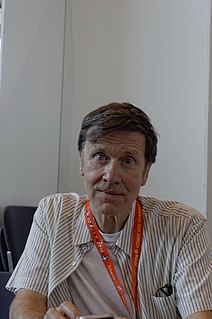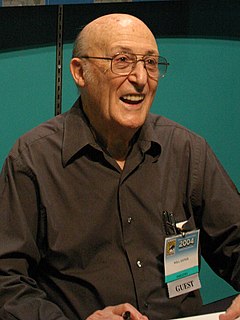A Quote by Peter Milligan
I've always been interested in the Greek tragedies. A few years back, I re-read a translation of the 'The Oresteia,' and that stayed with me, and slowly this idea of using some of those old legends and plays to tell a new story about modern urban life began to form.
Related Quotes
I have always been interested in mythology and history. The more I read, the more I realized that there have always been people at the edges of history that we know very little about. I wanted to use them in a story and bring them back into the public's consciousness. Similarly with mythology: everyone knows some of the Greek or Roman legends, and maybe some of the Egyptian or Norse stories too, but what about the other great mythologies: the Celtic, Chinese, Native American?
I read a lot. I always have, but in those two years I gorged myself on books with a voluptuous, almost erotic gluttony. I would go to the local library and take out as many as I could, and then lock myself in the bedsit and read solidly for a week. I went for old books, the older the better - Tolstoy, Poe, Jacobean tragedies, a dusty translation of Laclos - so that when I finally resurfaced, blinking and dazzled, it took me days to stop thinking in their cool, polished, crystalline rhythms.
Comics, which are really best described as an arrangement of images in a sequence that tell a story - an idea - is a very old form of graphic communication. It began with the hieroglyphics in Egypt, it first appeared in a recognizable form in the Medieval times as copper plates produced by the Catholic church to tell morality stories.
If you start with the idea that you are going to be writing about a night in a graveyard, and that there are only a few living people in that frame, all sorts of interesting and difficult technical problems arise. And then form - new form, or experimental form - might be understood as just trying to tell that story most movingly and efficiently.
At that time [90th in Lagos], if you drove through the city, you drove through a foreground that always seemed to be incredibly dramatic and incredibly agonised - smoking, burning, incredible compression. In the first year we stayed on the ground and went everywhere. But then in order to discover whether this was the whole story, we rented a helicopter. And we began to understand that this is not chaos but a highly modern system that had been abandoned, then at some point went into reversal, then slowly came out of it.
Conflict is the basis of drama. I guess that goes back as long as time has existed as far as mankind is concerned, dating back to the Greek tragedies or the Old Testament. And violence is a form of conflict, so whether that's catharsis or whether that has some socially damaging effect on audiences - I suppose that would just depend.
I re-mastered 'The Conversation' a few years ago for DVD. 'The Conversation' was the first film I edited on a flatbed machine - a KEM editing machine. I've been using Final Cut or the AVID for 12 years now, so I was interested in looking at this film and seeing if I could tell if it had been edited the old way. Truth be told, I couldn't.
All the Greek mythic heroes had gone east, but they were myths. Achilles was a myth. Perseus, Theseus, Hercules... they probably existed in some form. But they all went east. That's where a Greek went to make his bones so to speak. And Alexander the Great was the first man who actually went east not to plunder, not to loot and come back to Greece - which is where the Macedonians wanted to go back with the money. He stayed. And he became half-Eastern.






































